Stepping into the spotlight once more, Audi created history in 2022 by introducing the pioneering Audi RS Q e-tron, the first electric-driven car to tackle the demanding off-road Dakar Rally.
As anticipation builds for this year's event, we have delved behind the scenes and beneath the carbon to uncover the advancements made by Audi and their quest to surpass expectations in 2023.

First held in the deserts of North Africa in the 1980s, then South America’s Andes mountains in the 2000s, the Dakar Rally has been based in Saudi Arabia since 2020. Its two-week 8500km route – featuring day-long competitive stages up to 470km in length – takes teams right across the Arabian Peninsula from Yanbu on the Red Sea coast to Dammam on the Persian Gulf.''
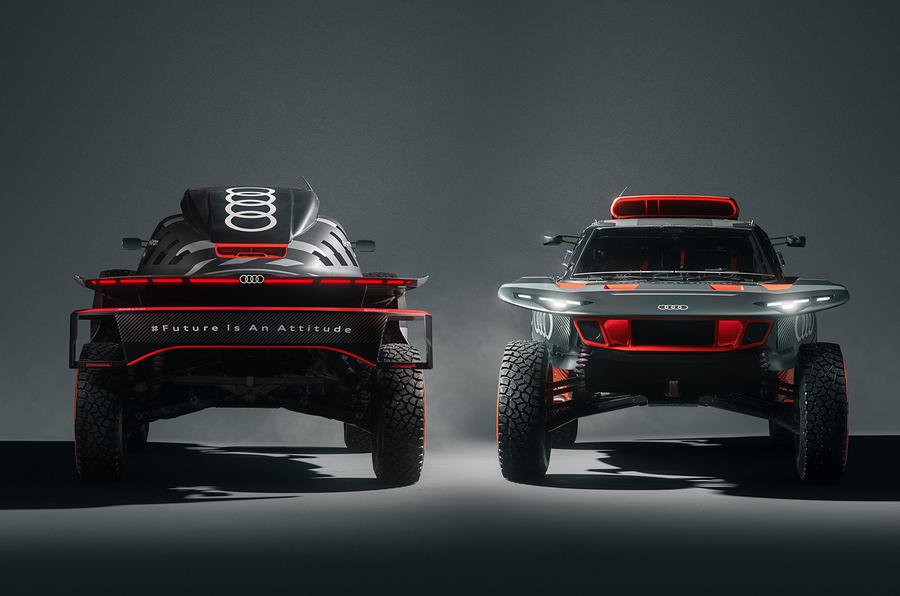
Along the way, competitors have to tackle rugged roads, rocky canyons and the towering dunes of the remote Rub’ al Khali desert (ominously known as ‘The Empty Quarter’), all in searing 40C heat. It’s truly one of racing’s toughest and most gruelling challenges – especially for an electric car.''
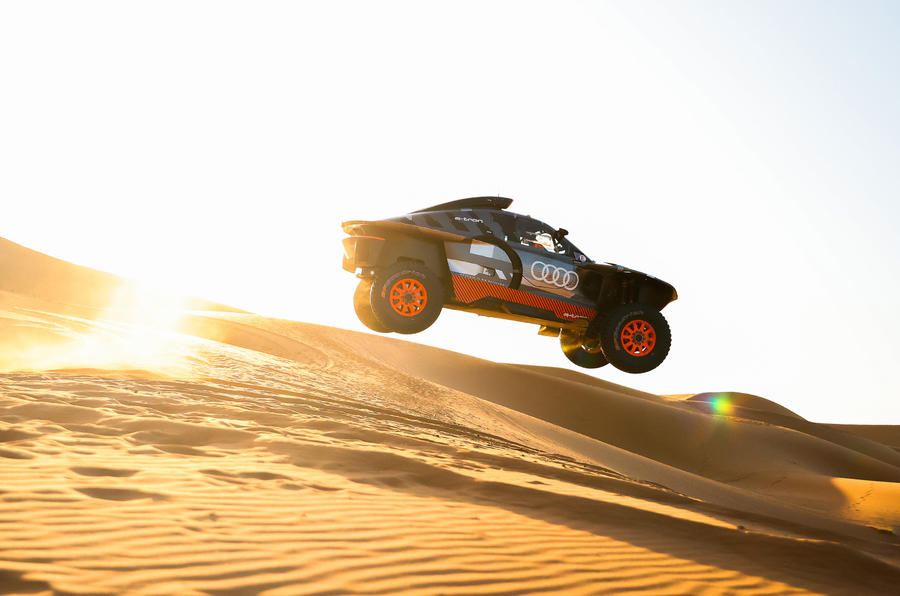
In 2022, Audi set out on the bold quest of using the Dakar Rally as potentially the toughest test bed for its e-tron technology. Bringing together experts from its successful Le Mans, DTM, World Rallycross and Formula E programmes, and adding the Dakar Rally-winning expertise of Sven Quandt and his Q Motorsport team for good measure, the result was the pioneering Audi RS Q e-tron.''
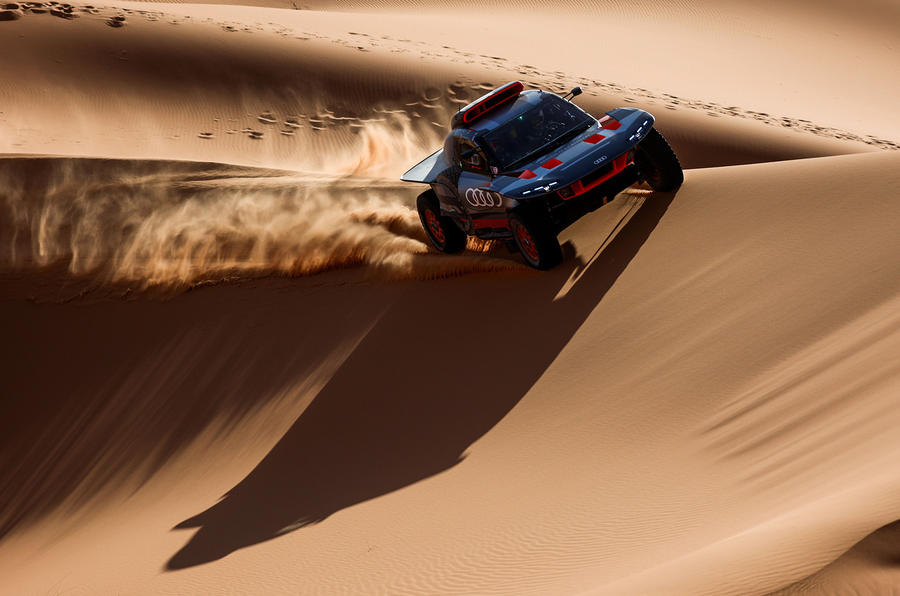
The Audi RS Q e-tron’s pulsing heart is an electric drivetrain, with two motor generator units (MGUs) – one on the front axle, one on the rear – linked by a ‘virtual’ software-driven centre differential with variable torque distribution for true quattro all-wheel drive.
Developed from the MGU05 that propelled Audi’s Formula E single-seater (and powered by an advanced high-voltage 50kWh lithium-ion battery), they generate up to 400hp, 0-62mph in 4.5s, and a 170kph limited top speed.

As recharging options on desert stages are somewhat limited, a third MGU05 acts as a generator – recapturing energy during deceleration from the advanced ‘brake-by-wire’ system. Also on-board is a TFSI petrol engine, developed from the 2.0-litre four-cylinder turbo used in the Audi RS 5 DTM race car. Operating in a narrow power band of between 4,500rpm and 6,000rpm to keep efficiency high and emissions low, it supplements the MGU to recharge the battery when needed.''
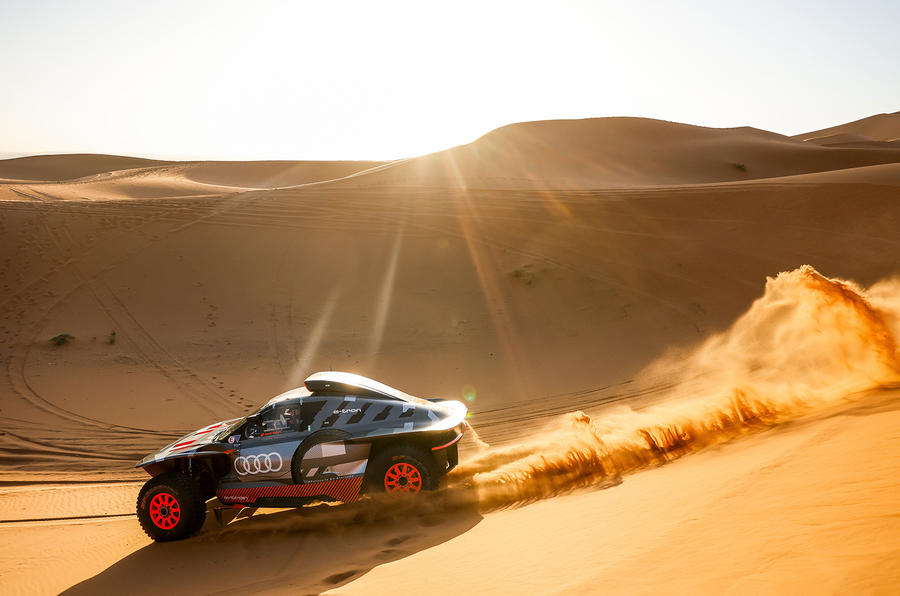
As a result of all this advanced electric tech, Audi Sport has admitted that the Audi RS Q e-tron is the most technically complex car in its racing history. But, despite this, it performed near faultlessly on its debut: making history with all three cars finishing the world’s toughest rally on their first attempt, and scoring four stage wins.''
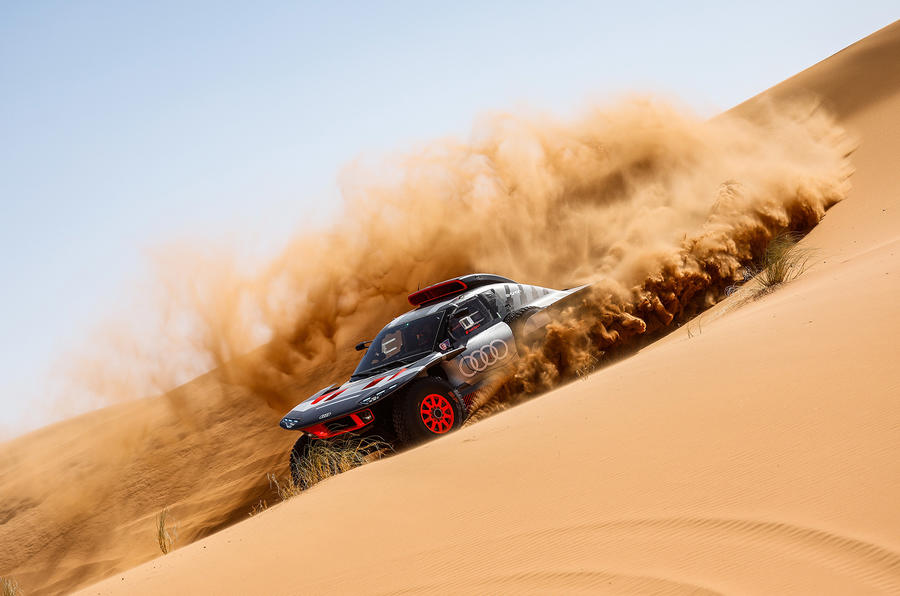
Audi went one better in the Abu Dhabi Desert Challenge in March 2022, dominating the field to score the first ever rally raid win for a car with electric drive. But Audi has never been a brand to rest on its laurels. Having won blue-riband events on every top-level track and rally stage around the globe, Audi has its sights firmly set on another slice of history with victory at Dakar. So, what has changed for 2023?
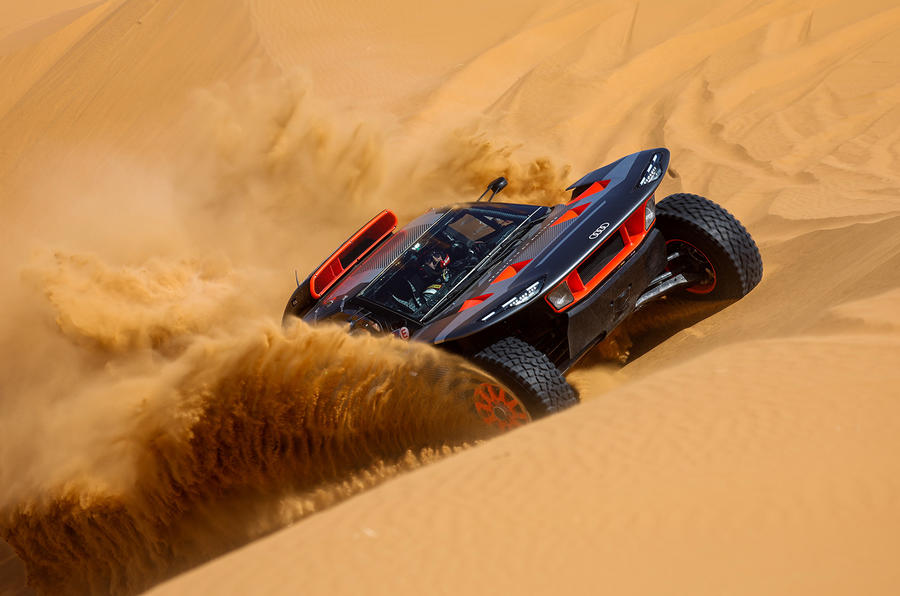
Video :



